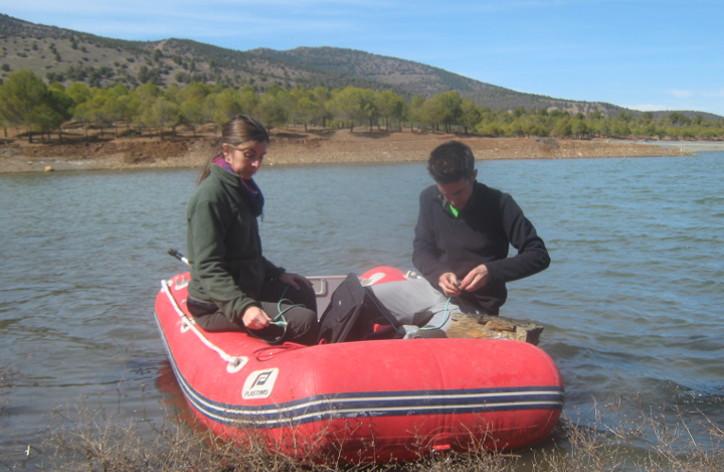We evaluated the modulator role of nutrients (of mineral origin and those associated with the dust coming from the Sahara Desert) on the growth of cladoceran Daphnia pulicaria in a scenario of increased acidification.

In experimental studies carried out in three Mediterranean lakes (Spain) we evaluated the modulator role of nutrients (of mineral origin and those associated with the dust coming from the Sahara Desert) on the growth of cladoceran Daphnia pulicaria in a scenario of increased acidification. The results showed that acidification per se would not significantly affect the growth of zooplankton. However, the effects of CO2 would be strongly mediated by the availability of nutrients; only in the presence of these, both those of mineral origin and those associated with the dust of the Sahara, CO2 showed a positive effect on the growth of cladocerans. In this way, the effects of an increase in CO2 on the growth of herbivores could be strongly influenced by processes of eutrophication and increased depositions of Saharan dust, both predicted future scenarios for the Mediterranean region.
Complete reference
Funding
This work was funded by the Junta de Andalucía Excelencia (P12-RNM327), the Ministry of Economy and Competitiveness (MINECO) and the European Regional Development Fund (FEDER, CGL2015-67682-R). The visit of Dr. Valiñas was funded by the Campus de Excelencia Internacional Global de Mar and the Universidad de Granada.